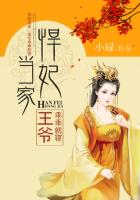Sam Baker. But they are casting off, and Mr. Ratcliffe will be left behind. I'll ask the captain to wait." About a dozen passengers had arrived, among them the two Earls, with a footman carrying a promising lunch-basket, and the planks were actually hauled in when a carriage dashed up to the whatf, and Mr. Ratcliffe leaped out and hurried on board. "Off with you as quick as you can!" said he to the negro-hands, and in another moment the little steamer had begun her journey, pounding the muddy waters of the Potomac and sending up its small column of smoke as though it were a newly invented incense-burner approaching the temple of the national deity. Ratcliffe explained in great glee how he had barely managed to escape his visitors by telling them that the British Minister was waiting for him, and that he would be back again presently. "If they had known where I was going," said he, "you would have seen the boat swamped with office-seekers.
Illinois alone would have brought you to a watery grave." He was in high spirits, bent upon enjoying his holiday, and as they passed the arsenal with its solitary sentry, and the navy-yard, with its one unseaworthy wooden war-steamer, he pointed out these evidences of national grandeur to Lord Skye, threatening, as the last terror of diplomacy, to send him home in an American frigate. They were thus indulging in senatorial humour on one side of the boat, while Sybil and Victoria, with the aid of Mr. Gore and Carrington, were improving Lord Dunbeg's mind on the other.
Miss Dare, finding for herself at last a convenient seat where she could repose and be mistress of the situation, put on a more than usually demure expression and waited with gravity until her noble neighbour should give her an opportunity to show those powers which, as she believed, would supply a phase in his existence.
Miss Dare was one of those young persons, sometimes to be found in America, who seem to have no object in life, and while apparently devoted to men, care nothing about them, but find happiness only in violating rules; she made no parade of whatever virtues she had, and her chief pleasure was to make fun of all the world and herself.
"What a noble river!" remarked Lord Dunbeg, as the boat passed out upon the wide stream; "I suppose you often sail on it?"
"I never was here in my life till now," replied the untruthful Miss Dare; "we don't think much of it; it s too small; we're used to so much larger rivers."
"I am afraid you would not like our English rivers then; they are mere brooks compared with this."
"Are they indeed?" said Victoria, with an appearance of vague surprise; "how curious! I don't think I care to be an Englishwoman then. I could not live without big rivers."
Lord Dunbeg stared, and hinted that this was almost unreasonable.
"Unless I were a Countess!" continued Victoria, meditatively, looking at Alexandria, and paying no attention to his lordship; "I think I could manage if I were a C-c-countess. It is such a pretty title!"
"Duchess is commonly thought a prettier one," stammered Dunbeg, much embarrassed. The young man was not used to chaff from women.
"I should be satisfied with Countess. It sounds well. I am surprised that you don't like it." Dunbeg looked about him uneasily for some means of escape but he was barred in. "I should think you would feel an awful responsibility in selecting a Countess. How do you do it?"
Lord Dunbeg nervously joined in the general laughter as Sybil ejaculated:
"Oh, Victoria!" but Miss Dare continued without a smile or any elevation of her monotonous voice:
"Now, Sybil, don't interrupt me, please. I am deeply interested in Lord Dunbeg's conversation. He understands that my interest is purely scientific, but my happiness requires that I should know how Countesses are selected.
Lord Dunbeg, how would you recommend a friend to choose a Countess?"
Lord Dunbeg began to be amused by her impudence, and he even tried to lay down for her satisfaction one or two rules for selecting Countesses, but long before he had invented his first rule, Victoria had darted off to a new subject.
"Which would you rather be, Lord Dunbeg? an Earl or George Washington?"
"George Washington, certainly," was the Earl's courteous though rather bewildered reply.
"Really?" she asked with a languid affectation of surprise; "it is awfully kind of you to say so, but of course you can't mean it.
"Indeed I do mean it."
"Is it possible? I never should have thought it."
"Why not, Miss Dare?"
"You have not the air of wishing to be George Washington."
"May I again ask, why not?"
"Certainly. Did you ever see George Washington?"
"Of course not. He died fifty years before I was born."
"I thought so. You see you don't know him. Now, will you give us an idea of what you imagine General Washington to have looked like?"
Dunbeg gave accordingly a flattering description of General Washington, compounded of Stuart's portrait and Greenough's statue of Olympian Jove with Washington's features, in the Capitol Square. Miss Dare listened with an expression of superiority not unmlxed with patience, and then she enlightened him as follows:
"All you have been saying is perfect stuff--excuse the vulgarity of the expression. When I am a Countess I will correct my language.
The truth is that General Washington was a raw-boned country farmer, very hard-featured, very awkward, very illiterate and very dull; very bad tempered, very profane, and generally tipsy after dinner."
"You shock me, Miss Dare!" exclaimed Dunbeg.
"Oh! I know all about General Washington. My grandfather knew him intimately, and often stayed at Mount Vernon for weeks together. You must not believe what you read, and not a word of what Mr. Carrington will say.















